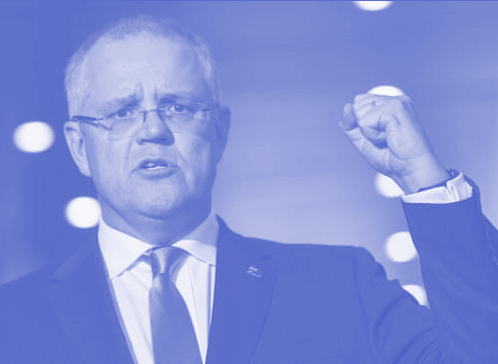Experts reflect on cash splash
 Economists are responding to Prime Minister Scott Morrison's economic stimulus package.
Economists are responding to Prime Minister Scott Morrison's economic stimulus package.
The Federal Government says it $17.6 billion package will do three things: support confidence, boost investment and keep Australians in a job.
More than half of the package ($11.5 billion) will land in the next few months in the form of two big expenditures - one-off cash payments of $750 to social security, veteran and other income support recipients and eligible concession card holders ($4.7 billion) and tax-free payments between $2,000 and $25,000 to help businesses with a turnover of less than $50 million cover the cost of their employee wages and salaries from 1 January to 30 June, totalling $6.7 billion.
The measures should cover about 6.5 million Australians and 690,000 businesses.
Economists have welcomed the new spending on welfare recipients.
“This is effective policy and very timely,” Commonwealth Bank senior economist Gareth Aird told the ABC.
“This is a significant injection of cash to the household sector and brings back memories of the Rudd government's 'cash splash' in 2009.”
Danielle Wood from the Grattan Institute says the measures for welfare recipients make sense.
“But where I think they will need to go, if there's a second-stage response, is around supporting incomes for working households,” she said.
“I think the real economic crunch here is going to come when we have to enact significant containment measures with closures of schools, childcare centres and workplaces, like we've seen overseas.
“But overall, at this point, I think the package is good for underwriting confidence.
“It certainly signals to business that the Government will support their cash-flow during a difficult period.”
But the funding of businesses to buy new assets has not been so well received.
Experts say many businesses are having their investment plans held back by a lack of underlying demand.
“Whether businesses have got the income and confidence to spend remains to be seen,” Commsec chief economist Craig James said.
Economist Saul Eslake has doubts about the investment allowances too.
“The extent that they encourage increased investment — and they might — that's going to divert cash flow away from keeping employees on towards purchases of capital items,” he said.
“And most of those capital items are likely to be imported and some of them may not be readily available if disruptions to supply chains around the world become more widespread.”
There is significant division over the question of whether the funding will help Australia avoid a recession.
“The Government's Fiscal Stimulus Package is a bold initiative to bolster the Australian economy's defences against the damage likely to be wrought by COVID-19,” Westpac chief economist Bill Evans wrote in a note to clients.
“However, the current domestic and global environment has deteriorated more rapidly than we had expected … despite the Government's bold efforts the June quarter is still likely to show negative growth and Australia will experience a technical recession.”







 Print
Print